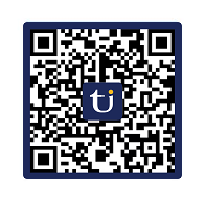[Introduction] Nowadays, people's understanding of human resource management is no longer just the job of the "interviewer" or the “person in charge of lay offs.” In Canada, the HR profession also has good employment prospects. This article will focus on the HR salary, employment prospects and courses to take. Description

Analysis of the Canadian Human Resources Major 1: Major and Curriculum
Introduction to Canadian Human Resources Management Programs
If improving corporate culture, promoting employee productivity, and creating a good work environment are things you are interested in, then the human resources profession is for you!
Through education in the Human Resources (HR) profession (whether you hold a certificate, a college diploma or an undergraduate degree), you will have the skills and abilities required for careers such as in employee compensation system optimization, human resources management, recruitment or employee relations, etc.
Business Related Articles:
- Rankings of Canadian Finance Programs and Employment Prospects | What are the jobs like??
- Rankings of Canadian Business Programs and Employment Prospects | What are the jobs like?
- Rankings of Canadian Marketing Programs and Employment Prospects | What are the jobs like??
- Rankings of Canadian Accounting Programs and Employment Prospects | What are the jobs like??
- Rankings of Canadian Management Programs and Employment Prospects | What are the jobs like??
Employment Prospects of Canadian Human Resource Management Graduates
What companies can HR graduates work in in Canada?
Since human resources are a key aspect of government organizations and private companies, you can find human resource professionals in medium to large organizations in all industries. The duties that HR professionals can generally perform in an enterprise include:
- Recruitment and dismissal of employees;
- Training of new employees;
- Establishment and management of salary and benefit plans;
- Manage employee performance;
- Formulation of payroll (after special training)
In fact, the largest proportion of the operating costs of most organizations goes into labour, including compensation and benefits, improving employee satisfaction, loyalty, and any other costs related to staffing.
However, due to budgetary reasons, small organizations and companies tend not to hire HR professionals. Generally speaking, in small companies, the management or headhunting companies usually act as HR.
It is worth mentioning that because there are few large companies operated by Chinese people in Canada that are large enough to hire HR staff, more HR jobs are concentrated in companies run by Canadian locals. This means that proficient English is a very basic requirement for HR positions in Canada. If your English foundation is not good, you should, improve your English through various methods before graduation。
》 Jobs for HRM graduates
As the management of talents is already a very critical part of modern enterprises, there are many occupations that HRM graduates can do.
In the following, we have selected occupations that we believe are relevant to human resources. The subject around human resource planning is usually related to the occupational field, or the required skill set may be similar to HR majors. In Canada, the positions suitable for HR are:
- Assistant Personnel
- Welfare officer
- Job Consultant
- Benefits Coordinator
- Staff Diversity Advisor
- Employee Relations Officer
- Promoter
- Human Resources Assistant
- Human Resources Coordinator
- Human Resources Manager
- Labour Relations Officer
- Labour Market Analyst
- Labour Organizer
- Labour Policy Analyst
- Payroll Administrator
- Recruiter
- Staff Coordinator
- Union Organizer
Please note: some of the occupations listed above require additional education, training and / or experience. For example, if you are a payroll administrator in Canada, you will need to get a Payroll Certificateissued by the Canada Payroll Association.
Determining Factors of Human Resource Management Student Salaries & Practical Examples
The salaries available for fresh HR graduates may vary widely and depend heavily on the following factors:
- Your education level (i.e. diploma, undergraduate degree, etc.)
- Whether you decided to work in HR
- The industry where you are employed (e.g. oil and gas or transportation industries, etc.)
- The type of work you have and the level of responsibility
- The size and type of company
- Where you work
- If you have a field of expertise (e.g. payroll)
- Other supporting skills, such as English
》Practical examples of income
So, as a human resources graduate, how much money do you earn each year?
Human resources salaries in Ontario, Canada:According to a study conducted by the Council of Ontario Universities in 2011, an annual salary of $52,276* is the average of business and commerce graduates obtained in 2010 two years after graduating from a university in Ontario. (This number is for all graduates who have obtained a bachelor's degree in business and commerce, not specifically for human resources graduates. Unfortunately, statistics on diploma and certificate-program graduates and graduates from other Canadian provinces and the United States are not available from the reputable sources.)
What do Canadian human resource management majors teach students?
The human resources courses are designed to prepare you for professional practice. In order to do this, these courses take you to study courses in other disciplines, helping you to get a view the employment relationships in the workplace from a variety of social, legal, political and economic perspectives.
In many human resources programs, successful completion of the courses also qualifies you for the Certified Human Resources Professional Certificate (CHRP) issued by theHuman Resources Professionals Association(HRPA) and other professional human resources associations.
》 Three human resources management qualifications: college diploma, undergraduate degree, graduate degree
The human resources management major in Canada is just like other majors. There are generally three types of credentials.
- Professional Diploma
- Bachelor’s Degree
- Master’s Degree
》 What skills do employers look for when recruiting human resource professionals?
You can be employed in many different industries with a human resources degree (or diploma). The high success rate of HR graduates finding jobs in their field does not come as a shock, but HR students can indeed learn many important skills in school, including:
- The ability to identify, analyze, predict and develop solutions to employee-related problems;
- Highly effective communication skills in the work environment;
- Ability to balance corporate goals and employee needs;
- Demonstrate the ability to understand relevant laws in the workplace;
- Ability to design, develop, implement, review and adjust effective recruitment and retention plans
- Ability to accurately plan staffing levels based on current and future needs
- Ability to effectively resolve conflicts in the workplace
- Ability to work under pressure in sensitive situations
The best school for human resource management
Human resource management is a business major. According to thelatest ranking of Canadian majors published by MacLean’s, the following are the top 10 business schools in Canada.
1、University of Toronto( Toronto Universities)Rotman School of Business
2、 UBC(UBC) Sauder School Of Business
3、York University(York University)Schulich School Of Business
4、University of Alberta(University of Alberta) Alberta School of Business
5、Western University(Western University) Ivey Business School
6、Queen’s University(Queens University)Smith School of Business
7、McGill University(McGill University)Desautels Faculty of Management
8、University of Waterloo( University of Waterloo)Faculty of Mathematics
9、Simon Fraser University(Simon Fraser University) Beedie School of Business
10、Ryerson University(Ryerson University)
Updated
Analysis of the Canadian Human Resources Major 2: Employment prospects: Are jobs easy to find?
Summary: UtoCanada’s views on the human resources management major
It can be said that there are two main types of people looking for HR jobs in Canada: graduates studying abroad and new immigrants.
》 Recommendations for HR graduates studying abroad:
The following are the 3 difficulties encountered by netizen, jason5460 in Canada as an HR professional:
- The first is language and culture, plus an understanding of Canadian local lifestyles. English is naturally a prerequisite for working in HR in a Western-cultured company. You may have no barriers to language communication, and you come from a common background with a similar knowledge base; even if you pronunciation is standard, it could be difficult to communicate in depth, and it is difficult to truly "make friends." For example, if your company’s Canadian colleagues talk to you about ice hockey, the Liberal and Conservative parties, movies, TV shows, weekend travel plans, etc., but you usually watch Chinese news, Chinese movies, and Chinese entertainment programs, it will obviously be difficult for you to hit it off. You will soon find that it is tough for you to blend in with the locals.
- Local work environment and customary practices: This includes knowing which recruitment website is more effective, what the differences between recruitment of union employees and non-union employees are, what to do if there is a work injury, how to lay off employees, etc.
- Understanding of Canadian workplace culture and labour laws: This part is simple, so we won’t go into details here.
Suggestions for new immigrants who worked in HR in China:
First option: There are many of those who work as HR executives in Canada. For HR professionals who have just immigrated to Canada, it is recommended to start at a low level, such as administrative or assistant. In the long run, if you worked in a foreign company in China, you should be able to continue your career in HR. But finding your first job maybe be very difficult. We recommended that you lower your expectations when looking for work.
Second option: go to school for a year, and then start looking for a job.
Third option: Enroll in the Bridging Program For Internationally Educated Professionals. There are many government-funded organizations in Canada to help new immigrants make a smooth job transition. For example, York University has a very goodBridging Program for Internationally Trained HR. We recommend new immigrants to learn more and contact these organizations.















